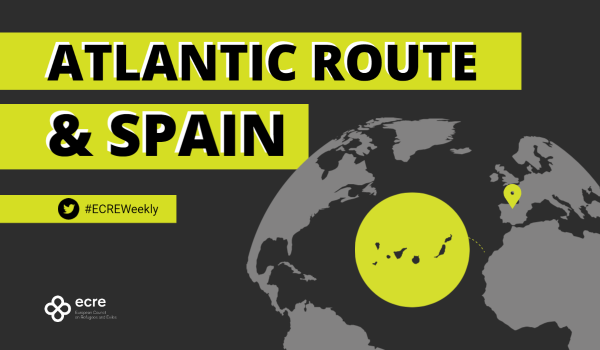- At least 89 migrants have died after their boat capsized off the coast of Mauritania.
- The spokesperson for Spain’s main opposition party has suggested that the Spanish government should use all the means at its disposal, including the deployment of military forces for border management.
- Hundreds of people have protested against migrant arrivals in several towns on the Canary Islands.
- 68 migrants have been rescued by a cruise ship in the Atlantic.
On 24 July, at least 89 migrants died after their boat capsized off the coast of Mauritania. The Mauritanian News Agency (AMI) reported that “the Mauritanian coast guard recovered the bodies of 89 people aboard a large traditional fishing boat that capsized on Monday July 1 on the coast of the Atlantic Ocean”. The coastguard rescued nine people, including a five-year-old girl. Survivors of the tragedy said that the boat set sail from the border of Senegal and Gambia with 170 passengers, meaning that 72 people were still unaccounted for. Several sources have commented that the Atlantic route, although particularly dangerous, has grown in popularity with people trying to travel from Africa to Europe due to increased vigilance in the Mediterranean Sea.
On 4 July, the spokesperson for Spain’s main opposition People’s Party (PP), Miguel Tellado, suggested that the Spanish government should use all the means at its disposal, including the deployment of military forces, for border management. “We ask the Spanish government to do its job and put a stop once and for all to this massive arrival of immigrants at our borders illegally and through mafias that are endangering the lives of these people,” he told the Antena 3 television station. Spanish Defence Minister Margarita Robles rejected his suggestion, stating that the country’s constitution does not task the army with controlling irregular migration, and asking the PP to stop “imitating or competing with” the far-right VOX party on the issue. “Statements like Tellado’s make me blush for many reasons, because they are absolutely contrary to immigration, because they reproduce the behaviour and statements of VOX, and because they imply ignorance of our Constitution and, at the same time, a lack of respect for the Armed Forces”, she said.
On 6 July, hundreds of people protested against the migrant arrivals on the Canary Islands. The protestors displayed signs bearing slogans such as “Defend our Neighbourhoods” and “Stop Illegal Immigration” in several towns, including Las Palmas and Santa Cruz de Tenerife. The Spanish NGO Caminando Fronteras has reported that more than 5,000 people died trying to reach Spain by sea in the first five months of 2024, with most of the deaths occurring on the Atlantic route. One of the protest organisers, Rudy Ruyman, said that the situation in the Canary Islands had become “a traffic in human lives” and that “the mafia is profiting from all the deaths at sea”.
On 20 June, 68 migrants were rescued from a boat in distress in the Atlantic en route to the Canary Islands. Unfortunately, six people also died in the incident. A cargo ship spotted the migrants’ boat and provided first assistance before a cruise ship was rerouted to pick up the survivors and the three bodies. Commenting on the incident, the Spanish Maritime Safety and Rescue Society (SASEMAR) X posted: “The Insignia cruise ship reports that the 68 people rescued are sub-Saharan (62 men, 3 women, and 3 minors)”. Unfortunately, bad weather prevented the ship from retrieving two other bodies from the small boat.
Related articles
- ATLANTIC ROUTE AND SPAIN: Spanish Prime Minister Praises “exemplary” Co-operation with Morocco Despite Increase in Arrivals and Ongoing Tragedies — Moroccan Smuggling Groups Operate Along Coast of Western Sahara and in Mauritania — Migration a Hot Topic in Senegal’s Presidential Election Campaigns — Spanish Judiciary Launches Investigation into Network Trafficking Migrant Corpses (March 2024)
- ATLANTIC ROUTE AND SPAIN: Ongoing Fatal Crossings – Spain and Frontex Renew Agreement After Temporary Suspension – Hundreds of Asylum Seekers Stuck in “Inhumane” Conditions for Weeks in Madrid Airport – Morocco Intensifies Efforts to Prevent Arrivals on Spanish Soil (February 2024)

